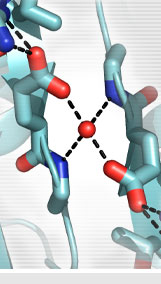
 |


![]()
The Extracellular Proteome
This is a new, large-scale effort that uses cutting-edge proteomics, DNA-barcoded probes, and gene silencing to understand how and why the cell surfaceome is remodeled in diseases like cancer. We then employ our industrialized phage-antibody platform in the Antibiome Center (part of the Recombinant Antibody Network) to build antibodies to detect, modulate, and attack disease-related surface proteins on cells and in animals.
Engineered Proteins for Signaling
This is a broad project to develop new engineered enzymes to identify the cellular substrates for proteases, kinases, ubiquitin ligases, or small molecule binding targets, and to selectively activate specific proteases, kinases, and CRISPR-driven processes using chemically-induced dimerization (CID) or light.
Site-directed drug discovery
This is a long-standing project to use Tethering, a thiol-disulfide exchange technology, to trap novel drug fragments near existing or engineered cysteines in allosteric sites of enzymes (caspases, kinases, and phosphatases), or protein-protein interfaces (GPCR or cytokine receptors). Such fragments are useful mechanistic probes and starting points for drug discovery.
Wells Lab © 2009 | Site Map